In the world of digestive health and fiber supplementation, many people wonder: Colon Broom vs Metamucil vs Psyllium Husk - what is the difference, and which is best? These dietary supplements are commonly used to improve digestion and regularity by increasing fiber intake. In each, the psyllium husk is the star. The differences are in the additional ingredients!
Jump to:
The short answer: Psyllium Husk is the main ingredient. ColonBroom has more natural ingredients than Metamucil. It also has a heavy price tag. Metamucil is ultra-processed, containing ingredients that can be counterproductive. Ultimately, I recommend the pure form of psyllium husk without the added ingredients. Let us share with you WHY.
As a holistic nutrition specialist, I strongly believe that the cleanest ingredients in all products are paramount for a healthy diet and overall health. So, when it comes to supporting your digestive system, it's important to choose wisely.
When I first started eating clean I realized I needed to address my digestive health. This led me to explore these supplement options further. Throughout my studies, delved into the world of colon health, fiber intake, and the significance of a healthy gut in our lives.
As a nutrition coach, I've encountered individuals struggling with chronic constipation, irritable bowel syndrome, and even celiac disease.
Many ask for recommendations on the best fiber supplement drink.
Let's examine the ingredients in each of these products and dissect the differences between Colon Broom vs Metamucil vs Psyllium Husk powder as soluble fiber supplements.
Disclaimer: While I advocate for natural living and clean ingredients, it's important to consult with a healthcare professional or registered dietitian before making any significant changes to your dietary or supplement regimen, especially if you have underlying health conditions. Your unique needs should guide your choices.
Colon Broom vs Metamucil vs Psyllium Husk
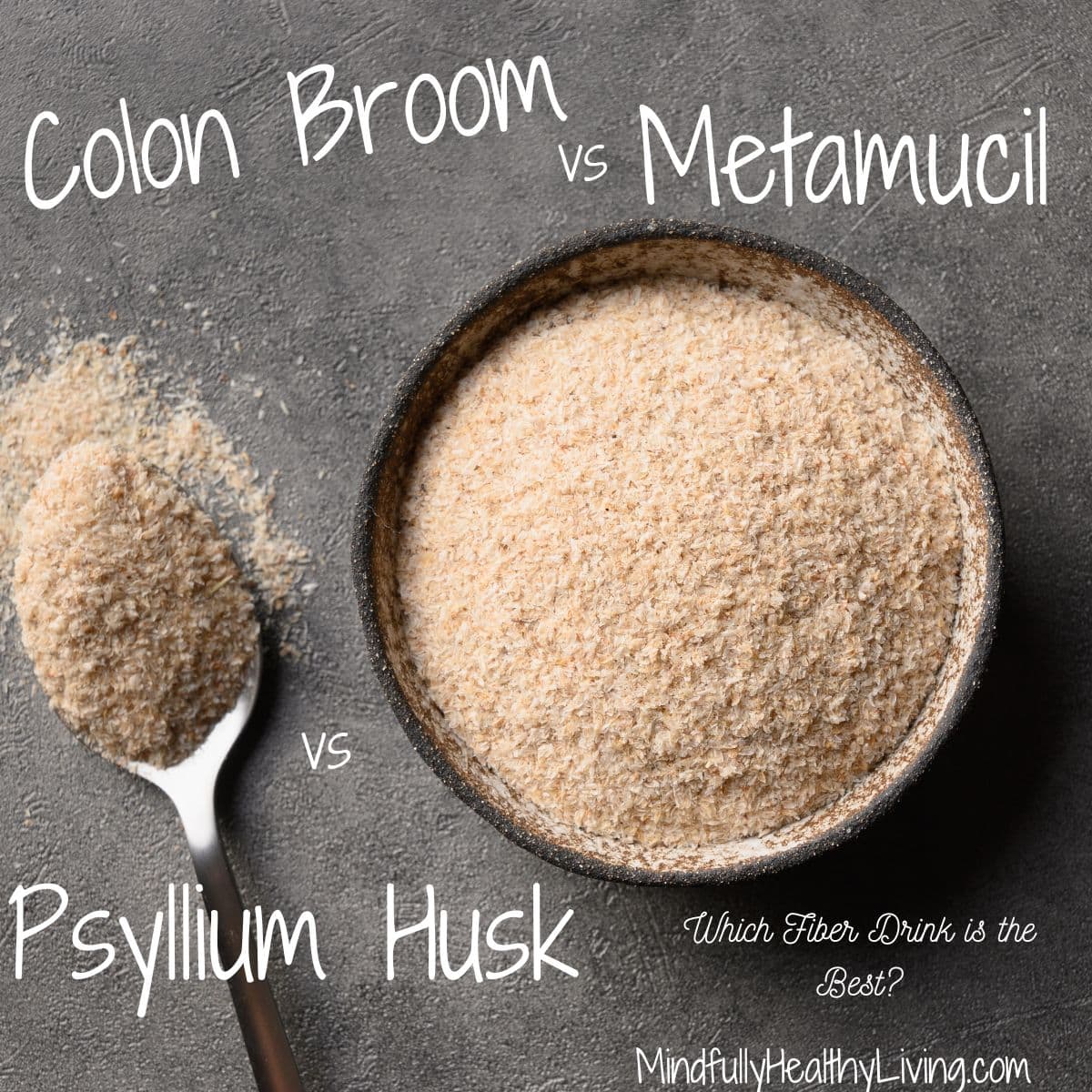
Cost: ColonBroom costs around $60-80 for 60 servings. Metamucil costs $30-50 for 180 servings. Psyllium Husk, depending on the brand, costs $10-20 for 100-200 servings.
Ingredients: ColonBroom has a handful of ingredients that seem natural but are slightly vague. It includes flavoring, citric acid, stevia, and more. Metamucil has a long list of artificial ingredients including sweeteners, coloring, preservatives, and more. Psyllium husk should have no added ingredients, Just pure psyllium whole husks. This makes it a versatile option to add to your favorite drinks or snacks.
Accessibility: Colon Broom and Metamucil are readily found in grocery stores and pharmacies, as well as online. Psyllium husk is also often found in the health food section of the grocery store as well as online.
Flavor: ColonBroom has a strawberry flavor added. Metamucil is commonly found in orange or berry flavors. Pure psyllium husk is flavorless.
Importance of Fiber
Fiber is an important part of a healthy diet. It helps to keep things moving and "sweep" waste through the colon. Without it, food can move quite slowly. Fiber does not absorb into the bloodstream like other nutrients do. It moves through the digestive system and helps everything else do the same.
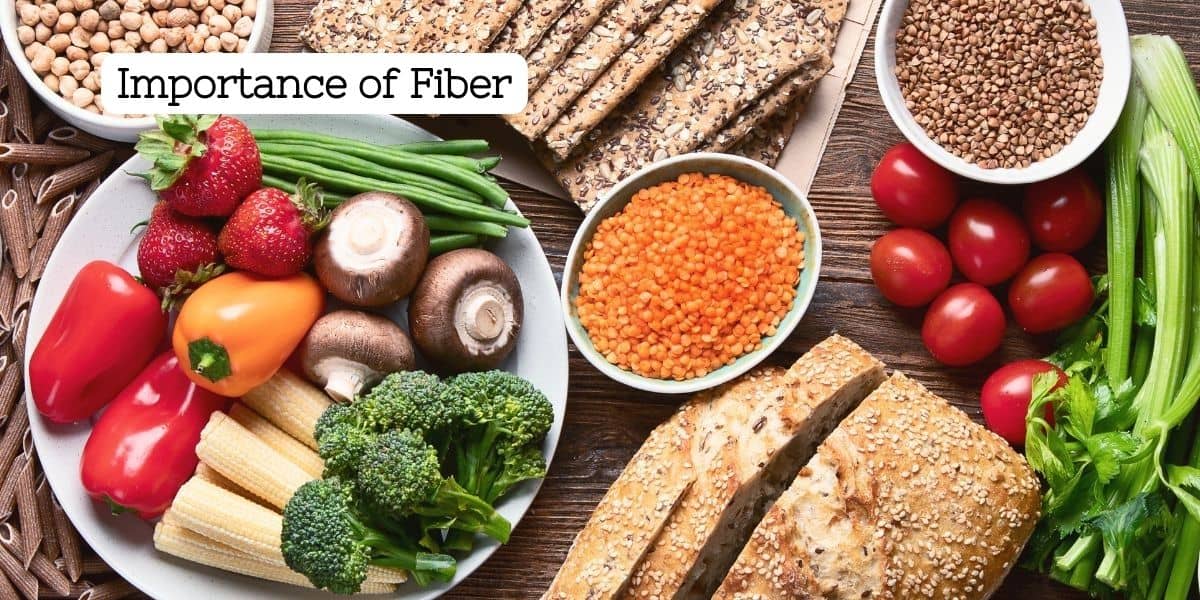
Gut Health: Fiber plays a vital role as a guardian of your gut's well-being. It helps regularity, preventing irregular bowel movements and contributing to a well-functioning digestive system.
Cholesterol Levels: Soluble fiber has been found to have a significant impact on naturally lowering cholesterol levels. This supports heart health and protects against heart disease.
Blood Pressure: Emerging research suggests that a higher intake of fiber may contribute to lower blood pressure levels.
Weight Management: The satiating effect of fiber-rich foods can be your ally in managing your weight.
Blood Sugar Regulation: Fiber helps maintain healthy blood sugar levels.
Gut Microbiota: Your gut is a bustling ecosystem with trillions of microorganisms. They thrive on fiber and foster a healthier gut microbiota. The microbiome is the center of your immune system!
Bile Acids: Soluble fiber contributes to the binding of bile acids. This promotes better digestion and overall gut function.
Healthcare professionals consistently emphasize the importance of incorporating a diverse range of fiber-rich foods into your daily diet.
These foods encompass fruits, vegetables, whole grains, legumes, and nuts. Remember, it's not just the quantity of fiber but also the specific types that matter.
Types of Fiber
Understanding the different types of fiber is pivotal in making informed dietary choices. Fiber can be broadly categorized into two main types: soluble fiber and insoluble fiber, each with its unique properties and benefits.
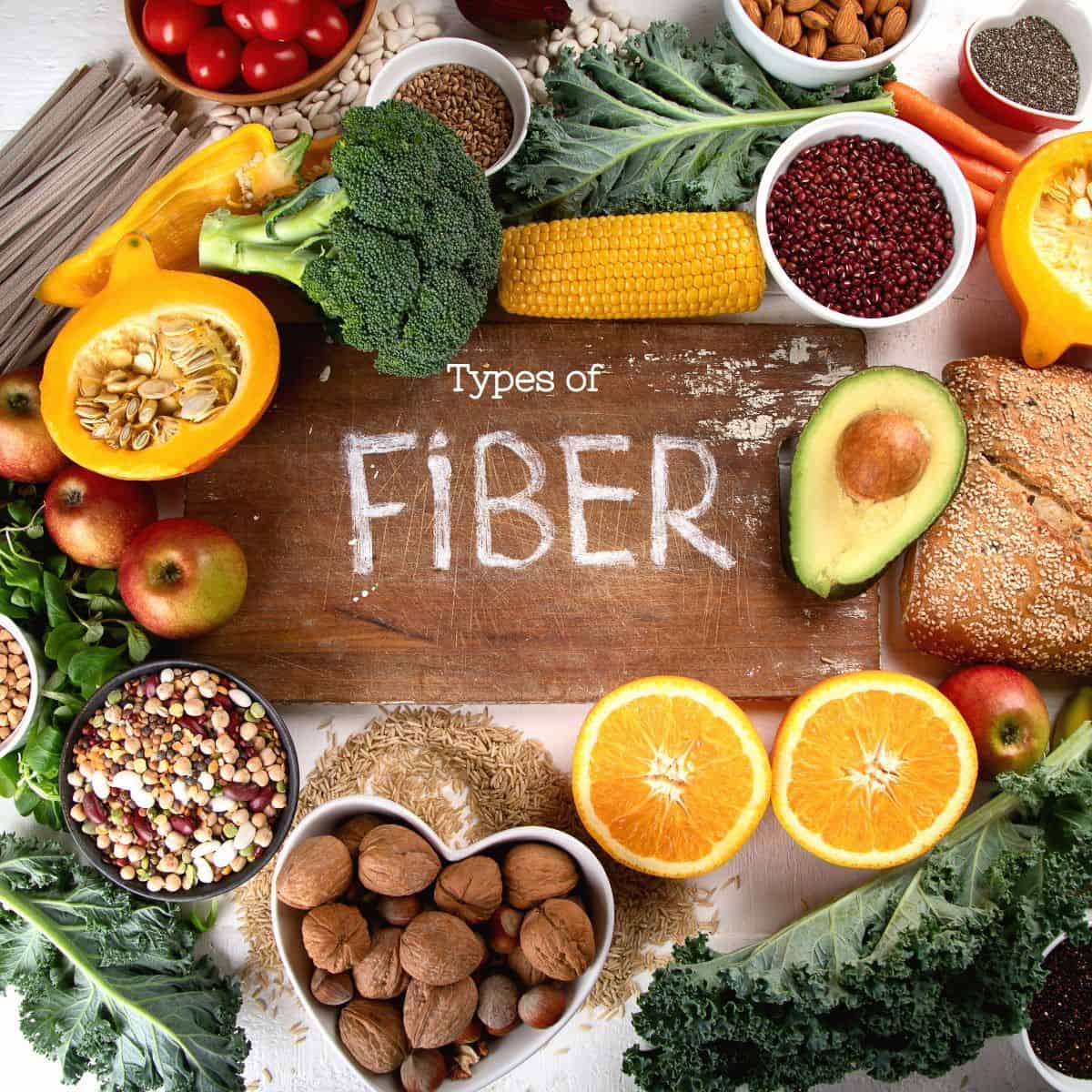
Soluble Fiber
This type of fiber dissolves in water, forming a gel-like substance in your digestive tract. Soluble fiber is known for its remarkable ability to:
- Lower Cholesterol: Research has shown that soluble fiber can help reduce LDL (bad) cholesterol levels.
- Stabilize Blood Sugar: Soluble fiber aids in maintaining healthy blood sugar levels.
- Gut Health: It provides nourishment to beneficial gut bacteria, supporting healthy gut microbiota and overall digestive well-being.
- Satiety: Soluble fiber can help you feel fuller for longer, which may assist in weight management.
Insoluble Fiber
Unlike soluble fiber, insoluble fiber does not dissolve in water. Instead, it adds bulk to your stool and aids in promoting regular bowel movements. Key attributes of insoluble fiber include:
- Digestive Regularity: Insoluble fiber acts as nature's broom, helping to prevent constipation and promoting regularity in your bowel movements.
- Gut Health: It contributes to a healthy gut environment by promoting efficient waste removal and preventing the buildup of harmful substances.
- Weight Management: While not as directly linked to satiety as soluble fiber, insoluble fiber can still play a role in supporting weight management by adding volume to meals.
In a health-conscious diet, both types of fiber are essential. A well-rounded intake of fiber-rich foods, including fruits, vegetables, whole grains, legumes, and nuts, ensures that you reap the benefits of both soluble and insoluble fiber.
By incorporating a variety of fiber sources into your meals, you can contribute to better digestive health, heart health, and overall vitality.
Whether you're seeking to lower cholesterol, manage your weight, or simply support your gut, understanding the types of fiber empowers you to make informed dietary choices.
That being said, let's delve into the health benefits of adding psyllium husk and comparing the most well-known fiber supplements that contain psyllium as a key ingredient.
What Is Psyllium Husk?
Psyllium husk, extracted from the seeds of the Plantago ovata plant, is a natural dietary fiber supplement renowned for its remarkable health benefits. It typically comes in the form of a powder, making it a convenient addition to your daily routine.
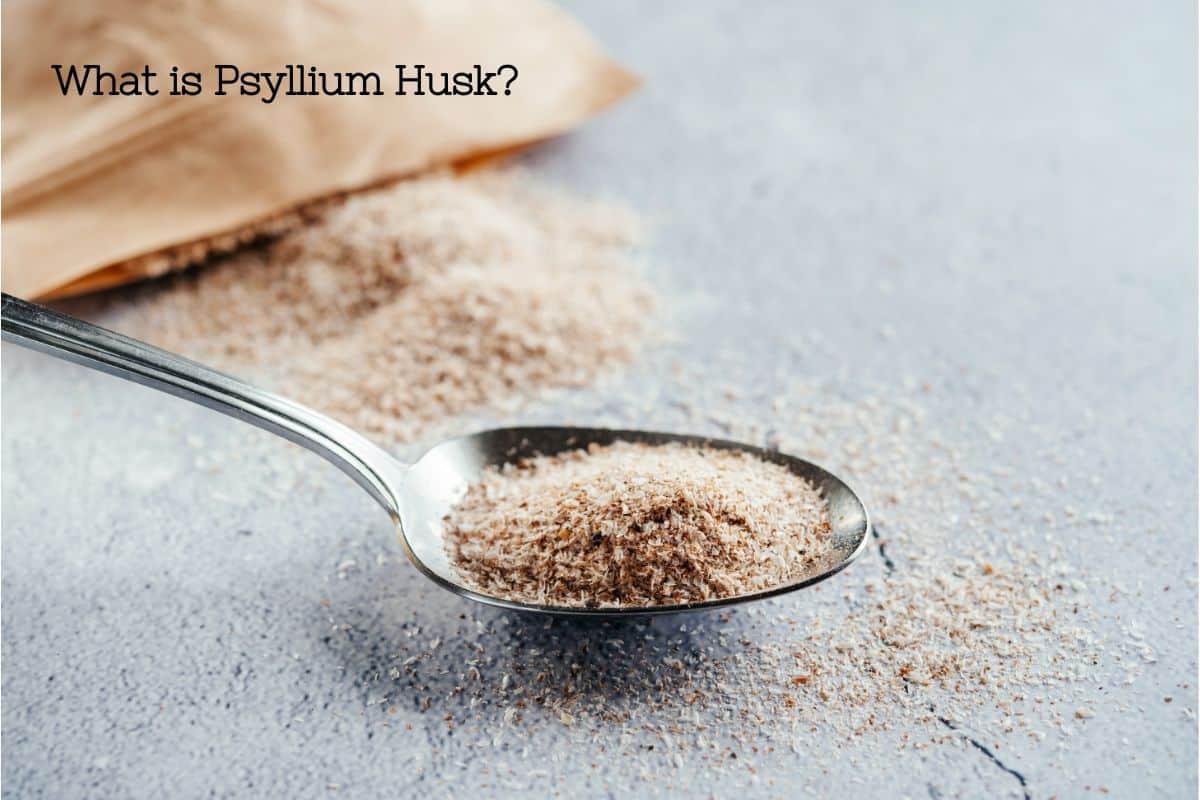
Key Characteristics of Psyllium Husk
- Natural Fiber Supplement: Psyllium husk is entirely natural, free from synthetic additives or chemicals. It is important to buy organic psyllium to avoid pesticide residues that can be counter-productive to gut health.
- Rich in Soluble Fiber: This natural fiber supplement boasts a high content of soluble fiber.
- Versatile Powder Form: Psyllium husk is pretty simple to incorporate into your daily life. You can blend it into water, or juice, or sprinkle it onto foods like oatmeal or yogurt. Check out our mucoid plaque cleanse recipe that features psyllium husk and bentonite clay for a deep colon cleansing effect.
Benefits of Psyllium Husk
- Digestive Health: Psyllium husk acts as a gentle natural colon cleanser. Improving regular bowel movements and alleviating constipation.
- Cholesterol Management: Scientific studies suggest that psyllium husk may play a role in lowering LDL (bad) cholesterol levels, which can contribute to overall heart health.
- Purely Natural Product: No added ingredients necessary! Just pure psyllium husk.
Incorporating psyllium husk into your diet can be a simple yet effective way to elevate your daily fiber intake and fortify your digestive health without added ingredients.
Looking for a recommendation? Try Himalaya Organic Whole Psyllium Husk or Anthony's Whole Psyllium Husks.
However, it's essential to use it as directed and consult with a healthcare professional, particularly if you have specific health concerns or medical conditions. The innate properties of psyllium husk make it an invaluable asset on your path to a healthier and more mindful lifestyle.
What is Colon Broom?
ColonBroom is a dietary fiber supplement made by the company Max Nutrition LLC. The company claims to use all-natural non-GMO ingredients. Like most fiber supplements, the active ingredient is none other than the fiber king itself, psyllium husk.
This powder supplement is designed to be made into a strawberry-flavored drink and is sweetened by stevia. It also incorporates a blend of dehydrated lemon and lemon oil that is intended to help support digestion.
The product comes in a tub with a scoop and about 60 servings and typically sells for $60-$80 per tub.
Their website recommends taking one tablespoon with 8 oz of water twice per day, starting slow for the first week with only one serving per day.
Many consumer product reviews state that they like this product for its ease of use and its strawberry taste. However, it is more expensive than making your own drink using psyllium husk.
Additionally, it contains citric acid, which can actually cause digestive disturbances in some people.
Here is a full list of ingredients for ColonBroom:
- Psyllium Husk Powder
- Natural Flavor
- Citric Acid
- Crystallized Lemon (citric acid, lemon oil, lemon juice)
- Stevia Leaf Extract
- Sea Salt
- Fruit & Vegetable Juice (for color)
- Rice Hulls
What is Metamucil?
Metamucil is perhaps one of the most well-known fiber supplement options for its role in supporting digestive health and regularity. This supplement comes in various forms, including powder, capsules, and wafers.
In fact, you may have seen commercials for it or even had your healthcare provider prescribe or recommend it for a digestive remedy. I know I have! Little did I know at the time that I needed to read the ingredients first!
Like ColonBroom, the primary ingredient that gives Metamucil its fiber-boosting power is psyllium husk. Remember, psyllium husk is a natural source of dietary fiber, and it's renowned for its capacity to absorb water and create a gel-like substance in the digestive tract. This process can act as a stool softener as well as a bulking agent and encourage regular bowel movements.
While psyllium husk is the star of the show in Metamucil, it's important to take note of additional ingredients present in its formulations. Some Metamucil products include artificial sweeteners, artificial flavors, synthetic colors, and other components- yikes!
If you are like me and prioritize natural and minimal ingredients, Metamucil might not be the best choice due to the presence of these additives.
Metamucil Ingredients
For reference, here is a list of the ingredients in a common metamucil product:
- acesulfame potassium (artificial sweetener)
- Allura red
- AC aspartame (artificial sweetener)
- citric acid
- FD&C Blue No. 1
- maltodextrin
- orange flavor
- Sunset Yellow FCF
- berry flavour blend
- psyllium hydrophilic mucilloid
These ingredients are heavily processed and can contribute to adverse effects on health (including gut health!). There are several synthetic colors used, as well as artificial sweeteners and flavors. Here is an article on the risks of food dyes. And here is one for Maltodextrin. And another for artificial sweeteners and their dangers.
Due to the highly processed nature of this "supplement", we suggest opting for a more natural option! When a healthcare provider recommends a supplement, I always ask about the ingredients, and if they have a more natural or organic option. To my surprise, sometimes they do! In my experience, the most well-versed physicians in nutritional health are functional medical doctors or naturopathic medical doctors.
Choosing the Right Product: ColonBroom vs Metamucil vs Psyllium Husk
When it comes to holistic nutrition and quality, I always emphasize that there is a good, better, and best. This spectrum is relative to the person's needs, what is available, possible, and affordable. Steps in the right direction are always the goal.
Incorporating fiber-rich whole foods into your daily diet is the best option for long-term health and wellness. However, once in a while when we find ourselves in need of a boost, we often look for a remedy or supplement to feel better fast.
If your healthcare provider is recommending a fiber supplement, these three options have possibly hit your radar. If you are wondering whether Colonbroom or Metamucil is best for your health, let's take a look!
Between these two formulated supplements- ColonBroom vs Metamucil, ColonBroom seems to have better quality ingredients.
Metamucil contains many extra ingredients that may be counterproductive to gut health.
However, ColonBroom is more expensive, so the better option might be to make a fiber drink out of psyllium husk yourself! The powder is very affordable and a little goes a long way!
Add a spoonful of psyllium husk powder, a teaspoon of raw honey or maple syrup (or monk fruit for a zero-calorie alternative), a splash of freshly squeezed lemon juice, and a glass of spring water. Mix it all up and drink it relatively quickly. Let's delve into the best practices for taking psyllium husk.
Try our Mucoid Plaque Cleanse Drink featuring psyllium husk and bentonite clay!
Best Practices for Taking Psyllium Husk
Psyllium husk is a natural dietary fiber supplement known for its potential benefits in promoting digestive health and regularity. To make the most of its advantages while minimizing potential risks, here are some best practices to consider:
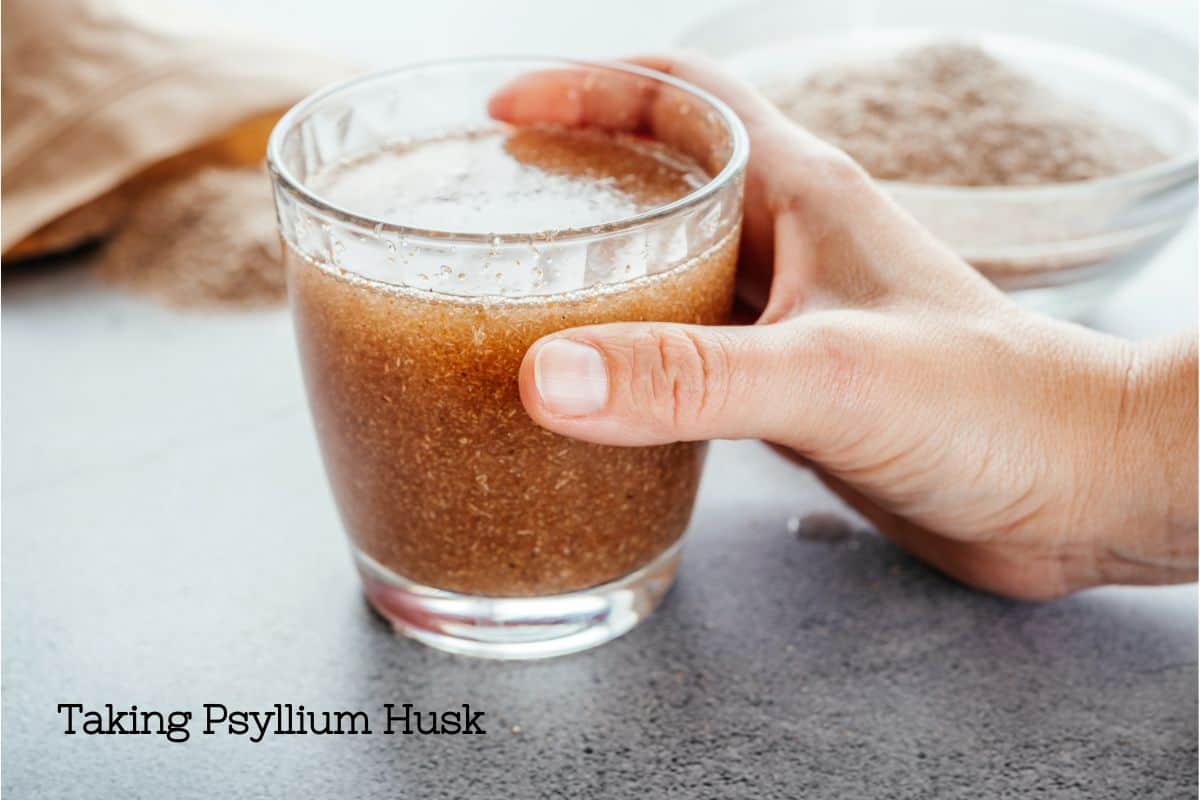
Preparation:
- Choose a High-Quality Product: Select a reputable brand of psyllium husk from a trusted source. Ensure it's free from additives, artificial sweeteners, and flavors if you prefer a more natural supplement.
- Follow the Serving Size: Adhere to the recommended serving size mentioned on the product label. Typically, this is around one tablespoon or as instructed.
- Mix Thoroughly: Whether you're using psyllium husk in powder or capsule form, it's crucial to mix it thoroughly with a sufficient amount of water or another beverage to prevent choking or blockage. Inadequate liquid intake can cause the product to expand and lead to discomfort.
Timing:
- Before Meals: Psyllium husk is often taken 30 to 60 minutes before meals. This timing can help create a feeling of fullness, potentially aiding in portion control during meals.
- Regular Consistency: To experience the benefits of psyllium husk consistently, incorporate it into your daily routine. This regularity can contribute to maintaining digestive health.
Hydration:
- Adequate Water Intake: Drinking enough water is crucial when consuming psyllium husk. The fiber in psyllium absorbs water, forming a gel-like substance in the digestive tract. Without proper hydration, it can lead to discomfort, including bloating or constipation.
When Not to Consume:
- Bedtime: It's generally not recommended to take psyllium husk right before bedtime, as it may cause discomfort during the night.
Risks and Side Effects:
- Bloating and Gas: Some individuals may experience temporary bloating or gas when starting psyllium husk. Gradually increasing the dosage can help reduce these symptoms.
- Choking Hazard: Psyllium husk can expand rapidly when mixed with liquids. To avoid choking or blockage, always mix it thoroughly with an adequate amount of water or beverage.
- Allergic Reactions: Individuals with known allergies to psyllium or related substances should avoid psyllium husk supplements.
- Medication Interactions: Psyllium husk may interact with certain medications. Consult with a healthcare provider, especially if you are on medication.
- Digestive Disorders: If you have a history of digestive disorders, such as irritable bowel syndrome (IBS) or diverticulitis, consult with a healthcare provider before using psyllium husk.
It's essential to approach psyllium husk supplementation with care, following recommended guidelines and consulting with a healthcare provider when necessary. By doing so, you can harness its potential benefits for digestive health while minimizing any associated risks or discomfort.
FAQ's
ColonBroom and Metamucil are both powder formulations made with the active ingredient, psyllium husk powder. However, their formula and the quality of the ingredients differ. Colon Broom has a few simple and more natural ingredients, while Metamucil is typically made with synthetic additives that can contradict a natural and healthy diet and lifestyle.
Many fiber-rich options on the market can work to help relieve constipation and IBS in the way that metamucil is designed to. The active ingredient in Metamucil is psyllium husk. Using pure psyllium husk, you can mix a squirt of lemon juice and a natural sweetener and mix it with water for a simple and natural fiber drink alternative to Metamucil.
The fiber in psyllium husk may help provide a full feeling for longer. It also slows gastric emptying which can contribute to satiety and the ability to stretch more time in between meals.
Conclusion
In the quest for digestive health and overall well-being, the choices we make play a pivotal role. Among these choices are dietary fiber supplements, each with its own merits and considerations. When comparing ColonBroom vs Metamucil vs psyllium husk, we encourage you to consider the ingredients. Not to mention, the cost!
When it comes to digestive supplementation and fiber drinks, psyllium husk is the most natural choice- and the most cost-effective.
Incorporating whole foods, fruits, vegetables, and natural sources of fiber into your daily meals is the best way to support your digestive health and overall vitality.
Have you tried a psyllium husk supplement? How did it work for you? Let us know in the comments below! Don't forget to share on socials and subscribe to our newsletter to get the most up-to-date wellness info to your email!
Have a healthy day,
Natalie

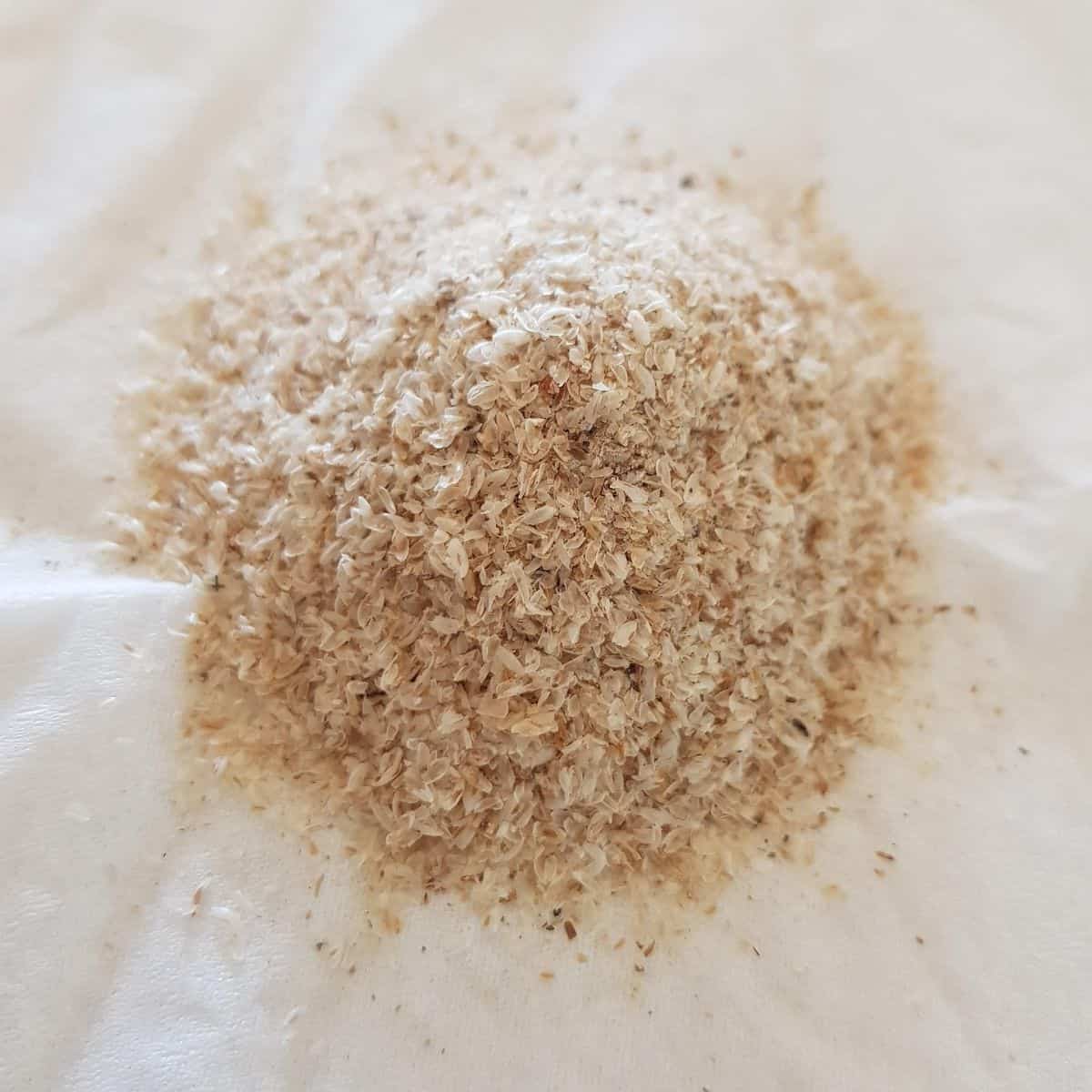
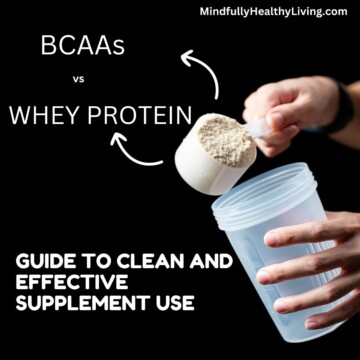
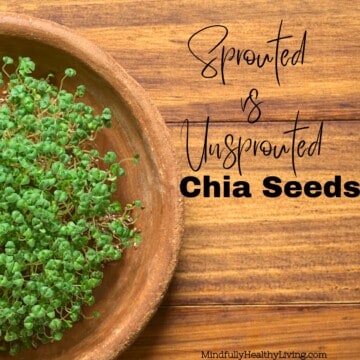
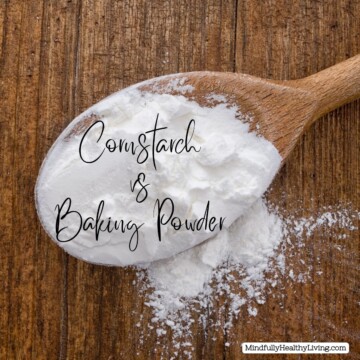
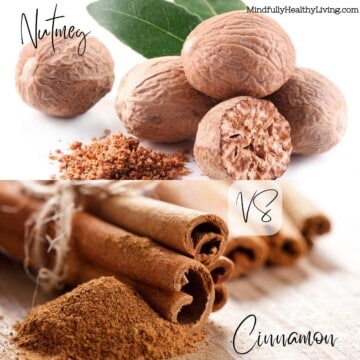
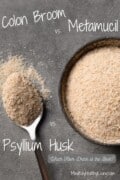



Comments
No Comments